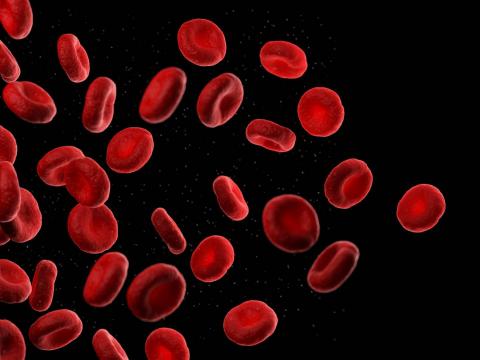According to an unpublished study presented at a conference of the American Heart Association and not peer-reviewed, an analysis of over 20,000 American adults found that individuals who restricted their food intake to less than 8 hours a day, following a time-restricted eating plan, were more likely to die from cardiovascular diseases compared to those who ate during 12-16 hours a day.

Duane Mellor - ayuno
Duane Mellor
Registered Dietitian and Senior Lecturer, Aston Medical School, Aston University
This report is a conference presentation and lacks the detail of a full paper to be able to assess the quality of the research. It appears to show the risk of death over a range of 1-13 years, median of 8 years, looking at how people ate on two days, which were linked to risk of cardiovascular disease and death. Although a model was used to assess risk, it is unclear if it included how healthy diet pattern was or even what people ate. As the information is limited it is not clear from the available information if smoking, physical activity and alcohol were considered as variables.
It is impossible to say if how a person restricts the time that they eat is linked to risk of health outcome as this abstract is suggesting – as it is unclear, as the data is so limited based on two days of diet recall, why they might have been restricting the time over which they ate. Some people might be doing this for health reasons, whilst others due to stressful work environments or poverty, which are both risk factors for cardiovascular death.
We need to be very careful not to generate concerning headlines and stories based on such limited information. It is perhaps what you eat and your overall lifestyle that is more important than if you ate all your food in less than 8 hours on two days in the last decade.
Keith Frayn - ayuno
Keith Frayn
Emeritus Professor of Human Metabolism, University of Oxford
Time-restricted eating is popular as a means of reducing calorie intake, although its proponents claim other benefits such as ‘ramping up metabolism’. This work is very important in showing that we need long-term studies on the effects of this practice. But this abstract leaves many questions unanswered, and further research will be needed. We don’t know the body weights of the participants: maybe the time-restricted eaters were making themselves too thin. We need to know more about their medical state, for instance, blood cholesterol and blood pressure. Finally we don’t know whether those who follow time-restricted eating might have done so because a physician has told them they need to lose weight because they are at high risk of cardiovascular disease. In general, we should be cautious about widespread adoption of eating strategies that have not been properly evaluated for longer-term effects.
“I have no conflict of interest to declare other than as an author of books on metabolism and body weight.
Author of:
Lipids: Biochemistry, Biotechnology and Health 6th edn (Wiley) published 2016– with Mike Gurr and others
Human Metabolism: a Regulatory Perspective 4th edition (Wiley) published 2019 with Rhys Evans
Understanding Human Metabolism (CUP) published 2022
Forthcoming:: A Calorie is a Calorie (Piatkus) 2025.”
Tom Sanders - ayuno
Tom Sanders
Professor emeritus of Nutrition and Dietetics, King’s College London
This is an interesting study which finds an unexpectedly large increase in risk of cardiovascular disease associated with reporting time restricted eating at baseline. The strengths of the study are that there was a relatively long follow up period (8 years) and the 20,000 participants were part of national nutritional survey which is representative of the American population. What is not clear is whether those who reported restricted time eating at baseline continued with this practice throughout the study. It is also unclear whether the individual reporting time restricted eating made a voluntary choice to adopt this pattern. It is likely that individuals reporting time restricted eating may be working antisocial hours (e.g. truck drivers, security personnel, health professionals, night workers). This is important because there is evidence that this type of working practice is associated with increased risk of type 2 diabetes and CVD. It is not clear whether statistical adjustment have been made for confounding factors (smoking, physical activity, alcohol intake, social class). It will be necessary to carefully look at the study in more detail when it is published in full.
Although time restricted eating has become popular in the media, there is lack of evidence to show it has any benefit in terms of weight loss or weight maintenance. Regarding cardiovascular risk factors, we know from previous existing evidence that it is probably better to spread food intake out throughout the day (small but often) rather than consume large meals over a shorter period. This is because large increases in blood fats and glucose result after big meals. These postprandial increase in blood fats and glucose can impair endothelial function and increase the level of blood clotting factors particularly factor VII. Prolonged fasting can contribute to raised blood cholesterol because it promotes the release of fatty acids from adipose tissue that stimulate the synthesis of very low density lipoproteins in the liver that give rise to low density lipoproteins in blood.
“Honorary Nutrtional Director Heart UK, member of science committee British Nutrition Foundation.”
- Research article
- Non-peer-reviewed
- Communication
Meng Chen et al. EPI|Lifestyle Scientific Sessions 2024. Abstract Poster #P192.
- Research article
- Non-peer-reviewed
- Communication



